DECOALONIZE LAMU
Being in the presence of well preserved history is undescribable. The detail, elements, language and culture so meticulously maintained over the years. The only trace of modernisation is probably a hint of technology. Only 3-5 vehicles exist at most on an island so serene and historic. Old architecture, streets so narrow, an influence from Arab tradition and people so warm and friendly. This has all been maintained since 1370. That's no random figure, but a year in history, when the great Swahili preserve that is Lamu island was founded. Over 600 years of unchanged history as it still exists hitherto. Lamu oozes an atmosphere like no other.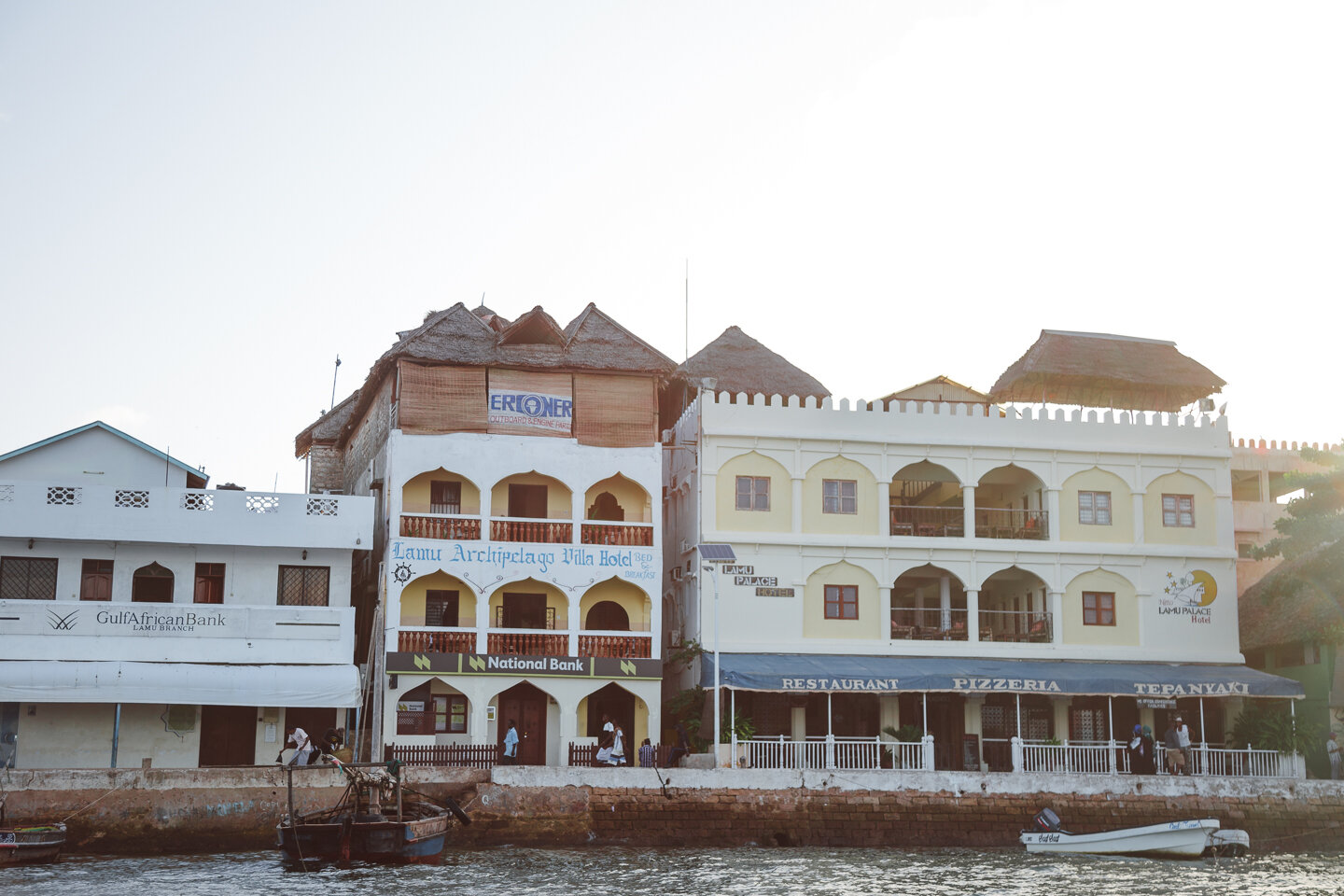 Its 2017, we now want to let that go. We want to extinguish the hope that the people of Lamu have in their own home, we want to strangle every trace of history that ever existed from the 19th Century by the neck until no more is left of it. A UNESCO World Heritage Site is under threat. All because we crave money, masking our greed behind the veil of providing energy for Kenya, a country with other alternatives of generating cleaner energy instead of coal.
Its 2017, we now want to let that go. We want to extinguish the hope that the people of Lamu have in their own home, we want to strangle every trace of history that ever existed from the 19th Century by the neck until no more is left of it. A UNESCO World Heritage Site is under threat. All because we crave money, masking our greed behind the veil of providing energy for Kenya, a country with other alternatives of generating cleaner energy instead of coal.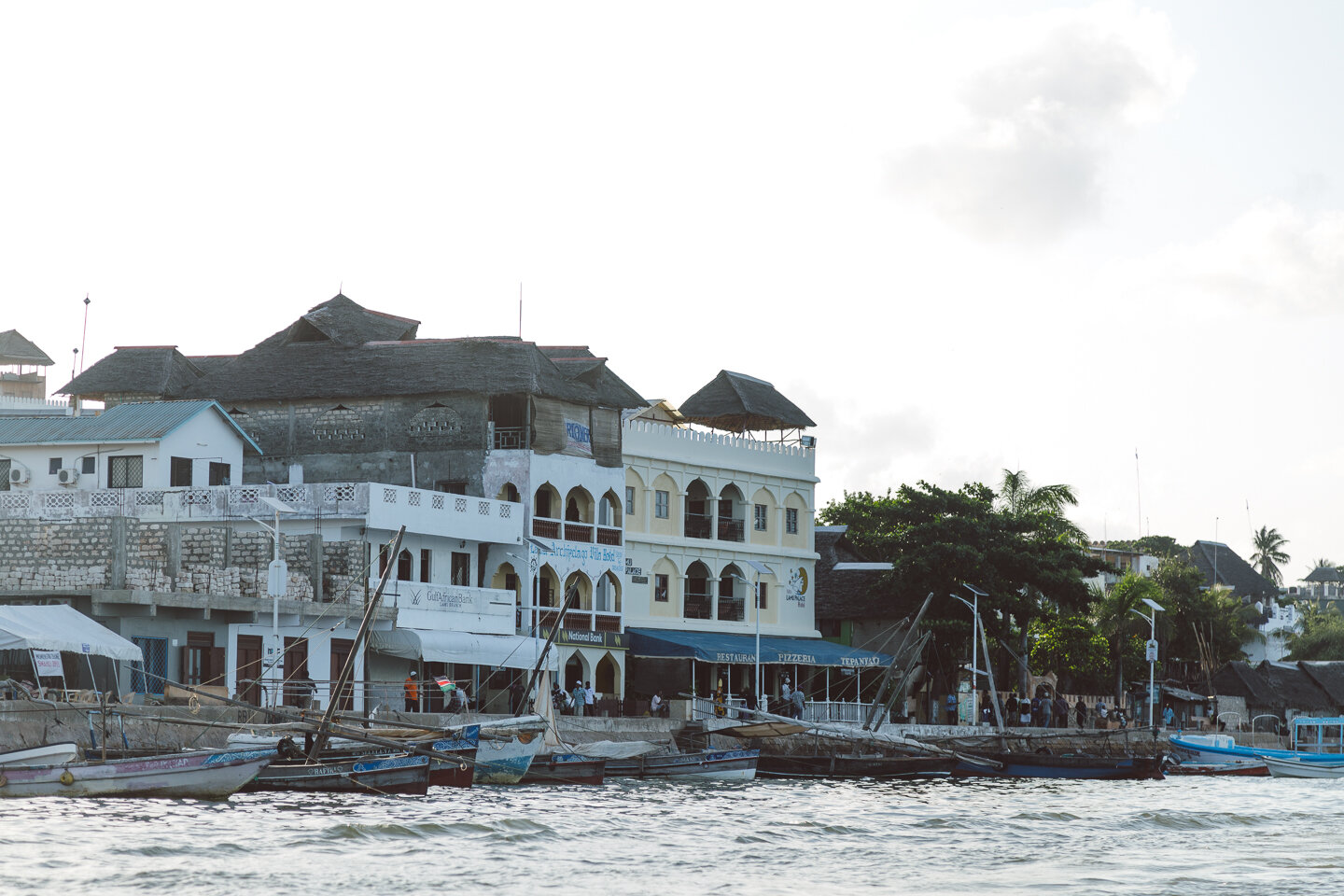 A little context: Kenya is undertaking the building of a coal fired thermal power plant in Lamu that will use imported coal from South Africa to produce around 8.8 Million MwH of power each year. This results from a deal signed with China worth $2 billion. The irony? China is currently working tirelessly to reduce its coal production while aiming to bring down carbon emission levels and informing its citizens of its efforts to maintain transparency. This is an intention to deliver on its Paris Agreement promise to the rest of the world, an agreement we are signatories to. We are a country moving towards coal production while the rest of the world bids goodbye in the hope that this can power us into the future. We're turning a blind eye to the harzadous accompaniments of health complications, killing marine life, air pollution etc. For more, you can read Diane Francis' piece in the Huffington Post here. And Erik Nordman's piece here. The most basic of rights are under threat and the people of Lamu island, those who depend on its many features are going to be affected. It's time to talk about them. Those who depend on the air in Lamu, those who call the waters of the Indian Ocean their office and those who have known no other home than the island of Lamu and its environs. They matter.
A little context: Kenya is undertaking the building of a coal fired thermal power plant in Lamu that will use imported coal from South Africa to produce around 8.8 Million MwH of power each year. This results from a deal signed with China worth $2 billion. The irony? China is currently working tirelessly to reduce its coal production while aiming to bring down carbon emission levels and informing its citizens of its efforts to maintain transparency. This is an intention to deliver on its Paris Agreement promise to the rest of the world, an agreement we are signatories to. We are a country moving towards coal production while the rest of the world bids goodbye in the hope that this can power us into the future. We're turning a blind eye to the harzadous accompaniments of health complications, killing marine life, air pollution etc. For more, you can read Diane Francis' piece in the Huffington Post here. And Erik Nordman's piece here. The most basic of rights are under threat and the people of Lamu island, those who depend on its many features are going to be affected. It's time to talk about them. Those who depend on the air in Lamu, those who call the waters of the Indian Ocean their office and those who have known no other home than the island of Lamu and its environs. They matter. Kassim Said has known the coast all his life. Having worked for over 60 years as a sailor and fisherman on the shores of Zanzibar, Kismayu, Kilifi and Lamu, he has seen the benefits of a clean water life. However, for the first time in his 73 years of age, he is now faced with the daunting prospect of having to live off of polluted water and air on the island that he and his family call home and work.
Kassim Said has known the coast all his life. Having worked for over 60 years as a sailor and fisherman on the shores of Zanzibar, Kismayu, Kilifi and Lamu, he has seen the benefits of a clean water life. However, for the first time in his 73 years of age, he is now faced with the daunting prospect of having to live off of polluted water and air on the island that he and his family call home and work.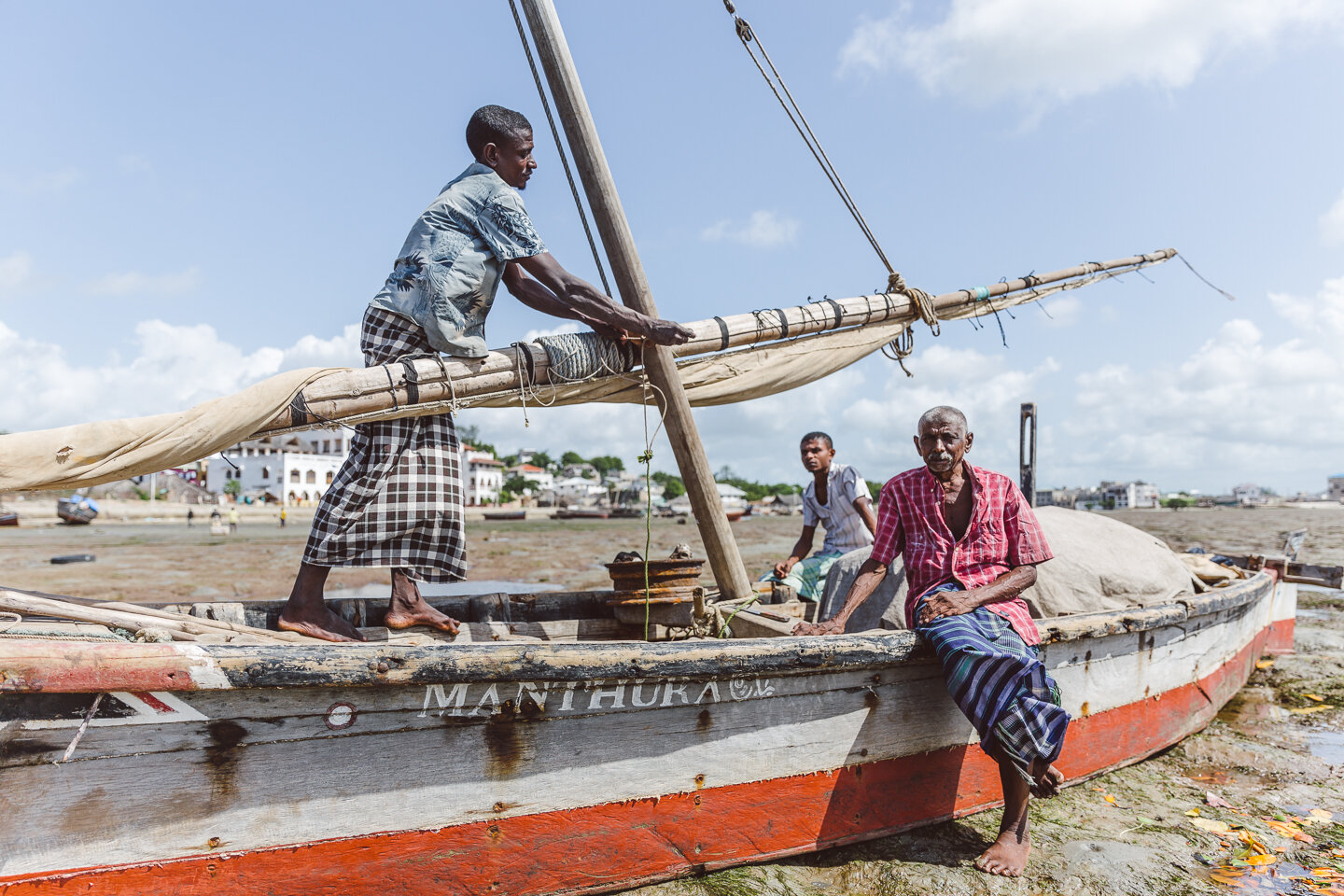 He has taught his sons how to fend for themselves and has expanded his fleet of boats for fishing and transport activities along the coast.
He has taught his sons how to fend for themselves and has expanded his fleet of boats for fishing and transport activities along the coast.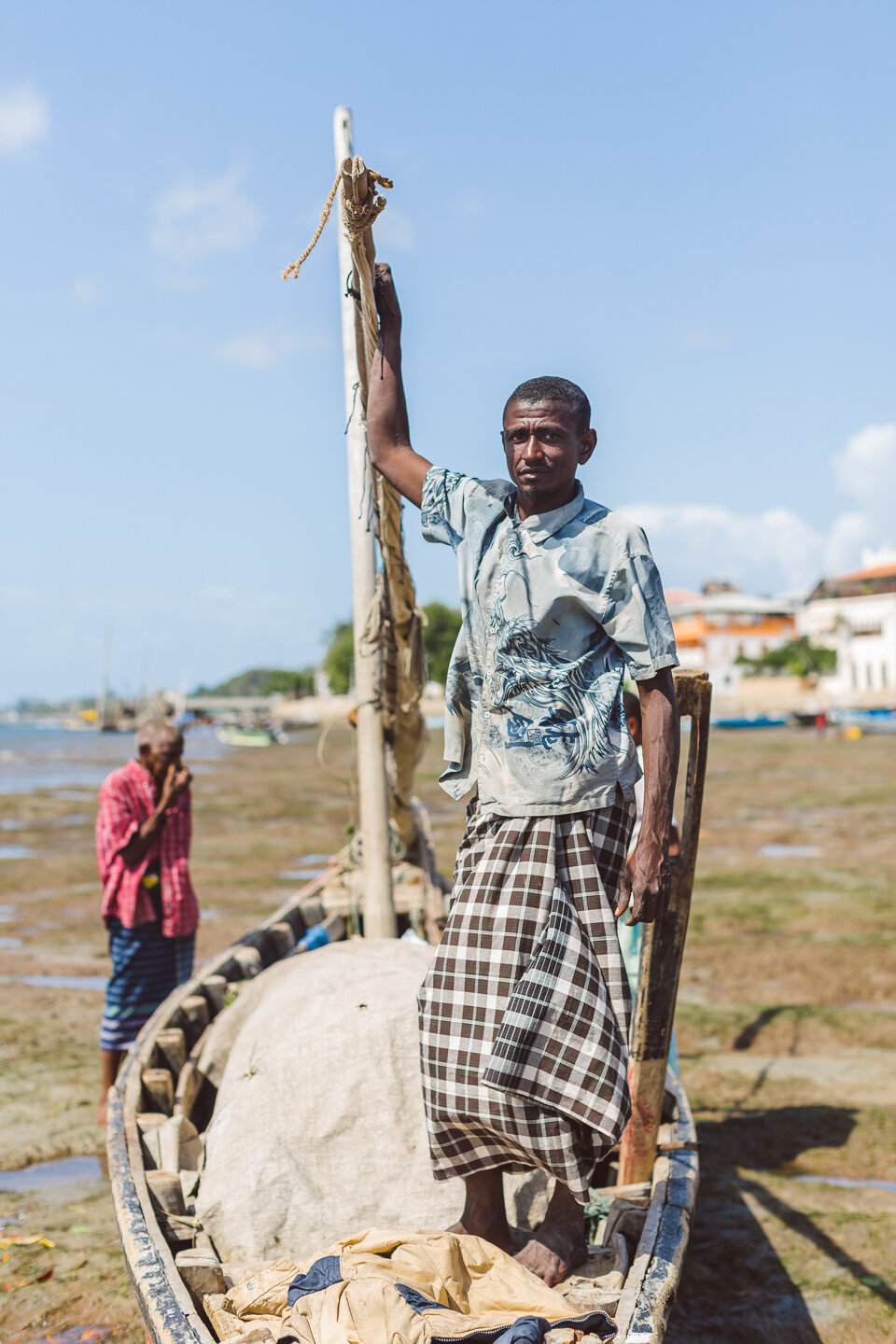 He is just one of the many people dependent on the waters of the Indian ocean as a source of livelihood and he hopes that his sons and generations to come can have the same in future.Several metres away, is Mwaulana Said Athman, who has taken a day off to attend to his boat. He tells me his treasured boat of over 7 years needs a thorough paint job as he listens to preachings on his mobile phone. He has never lived a day outside Lamu and its environs and is the sole bread winner in his house. His children attend school in Lamu. The coal project is familiar to him and his main opposition is the health of his children. "There aren't enough hospitals on the island and the healthcare is not at the level it should be, my children will definitely be affected when they breathe the polluted air coming from the plant."
He is just one of the many people dependent on the waters of the Indian ocean as a source of livelihood and he hopes that his sons and generations to come can have the same in future.Several metres away, is Mwaulana Said Athman, who has taken a day off to attend to his boat. He tells me his treasured boat of over 7 years needs a thorough paint job as he listens to preachings on his mobile phone. He has never lived a day outside Lamu and its environs and is the sole bread winner in his house. His children attend school in Lamu. The coal project is familiar to him and his main opposition is the health of his children. "There aren't enough hospitals on the island and the healthcare is not at the level it should be, my children will definitely be affected when they breathe the polluted air coming from the plant."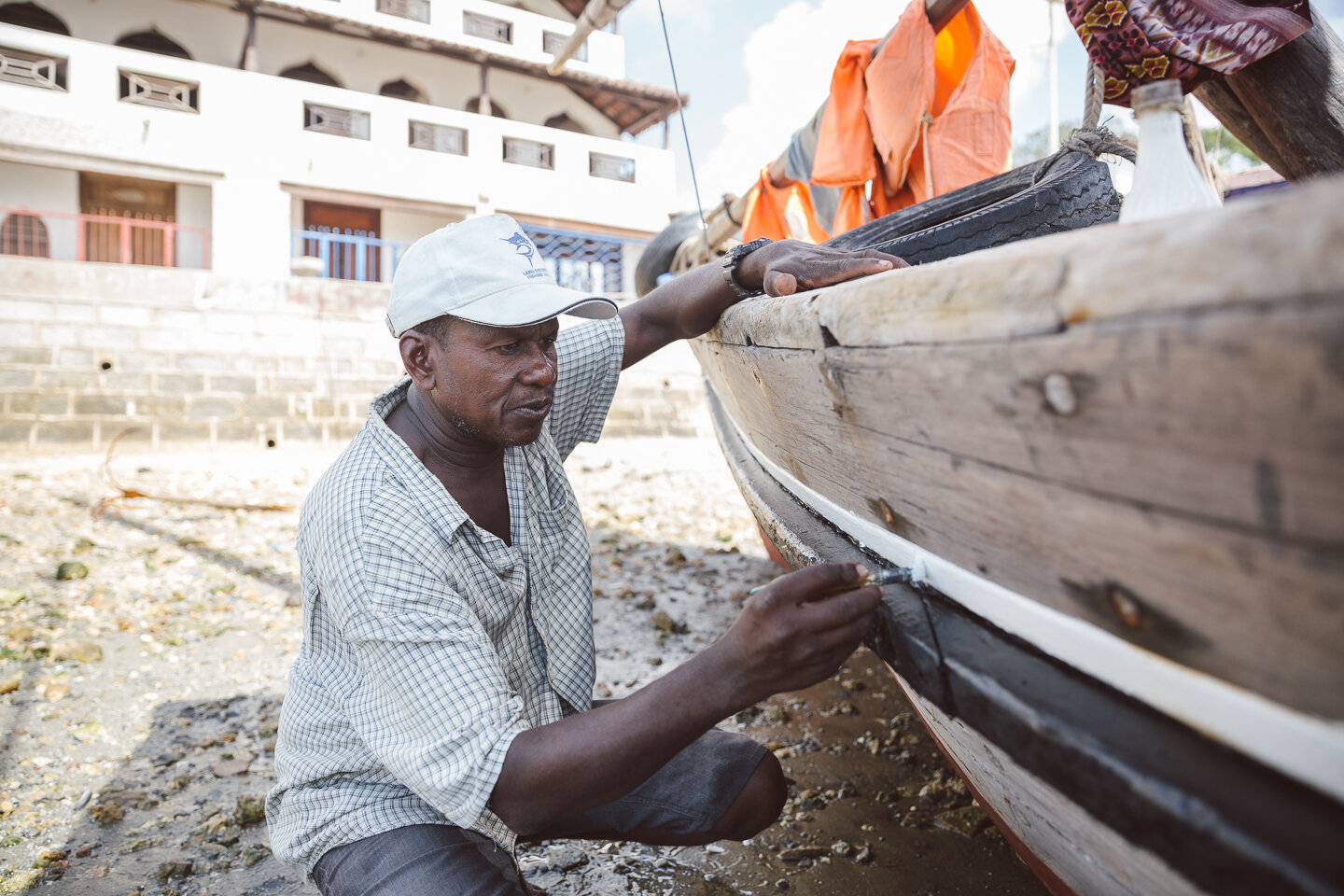

 Right beside him, I find Juma, quietly hammering in cotton on the sides of a boat he was repairing. This is his livelihood.
Right beside him, I find Juma, quietly hammering in cotton on the sides of a boat he was repairing. This is his livelihood.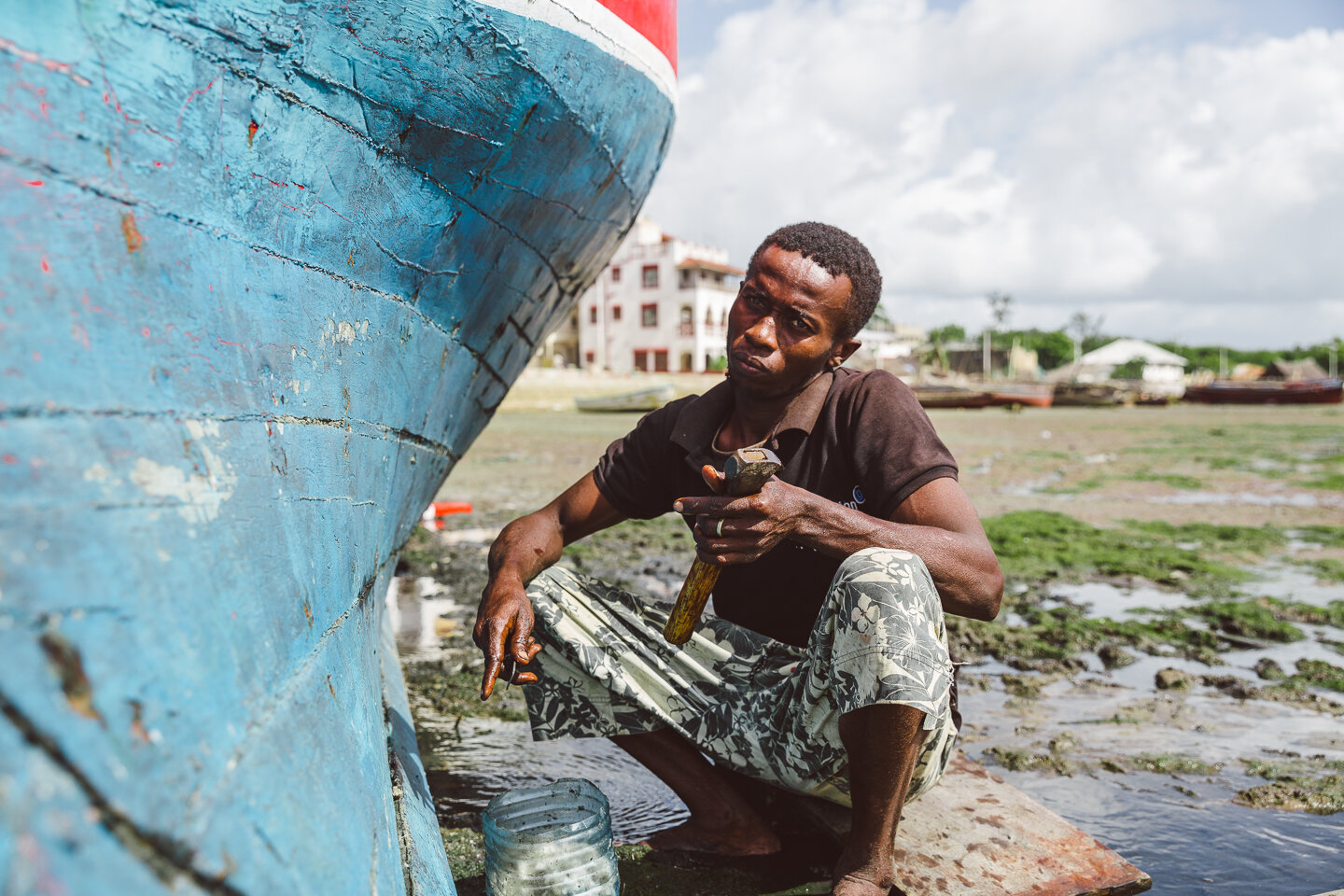 He tells me that cotton absorbs water and doesn't allow leaks to get into the cracks of old boats.
He tells me that cotton absorbs water and doesn't allow leaks to get into the cracks of old boats.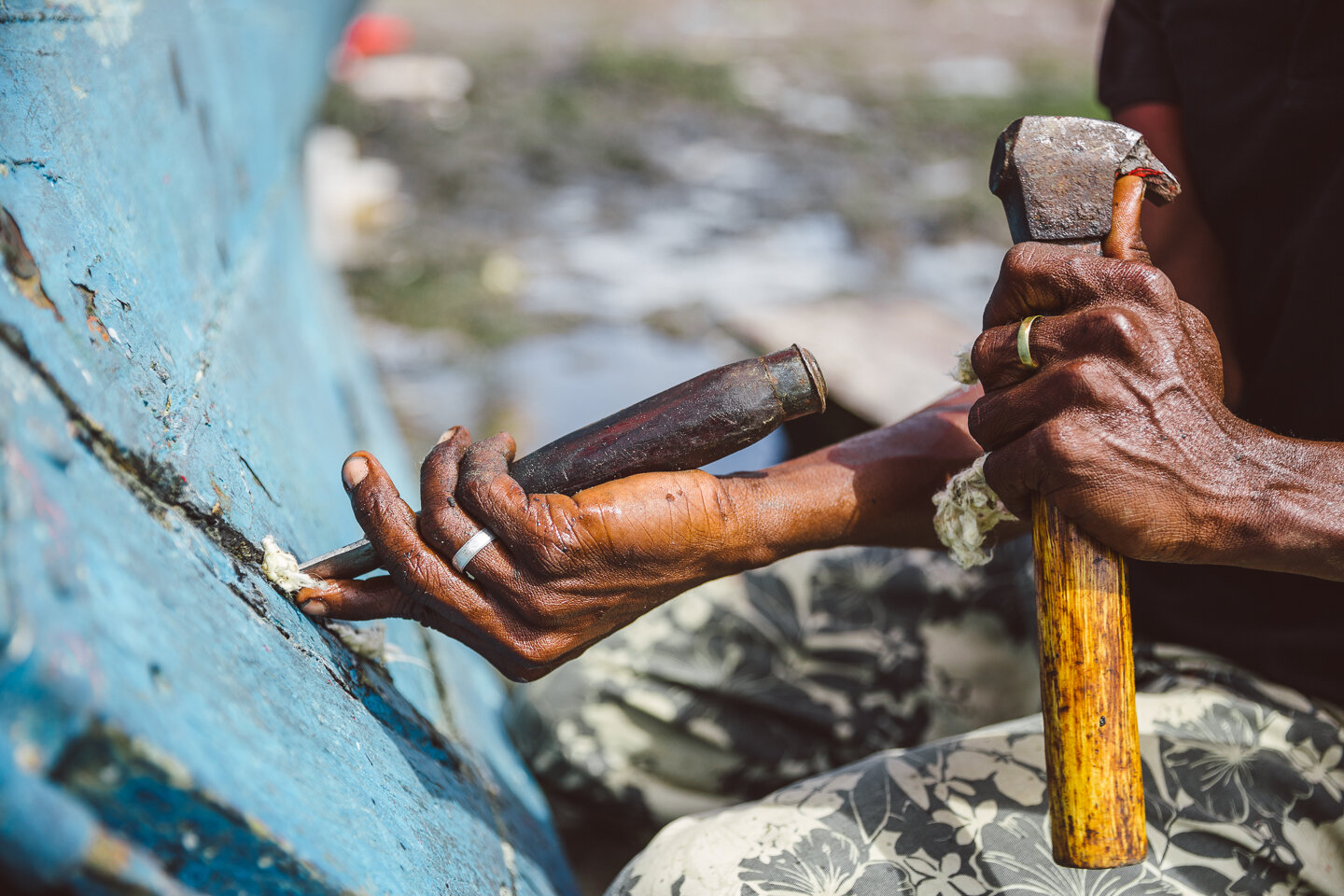 For him, it matters that the water from which his livelihood comes from is kept clean and free of any pollutants. His two children depend on him and his wife who works in Old Town. Together, they make ends meet at the end of the day. Having been unable to attend secondary school owing to financial problems, he made his money repairing boats of the many fishermen who ply their trade in the Indian Ocean. He jokes of how his kids love fish so much he doesn't see how they can survive in future without it if the ocean is full of murky water and the fish die.
For him, it matters that the water from which his livelihood comes from is kept clean and free of any pollutants. His two children depend on him and his wife who works in Old Town. Together, they make ends meet at the end of the day. Having been unable to attend secondary school owing to financial problems, he made his money repairing boats of the many fishermen who ply their trade in the Indian Ocean. He jokes of how his kids love fish so much he doesn't see how they can survive in future without it if the ocean is full of murky water and the fish die.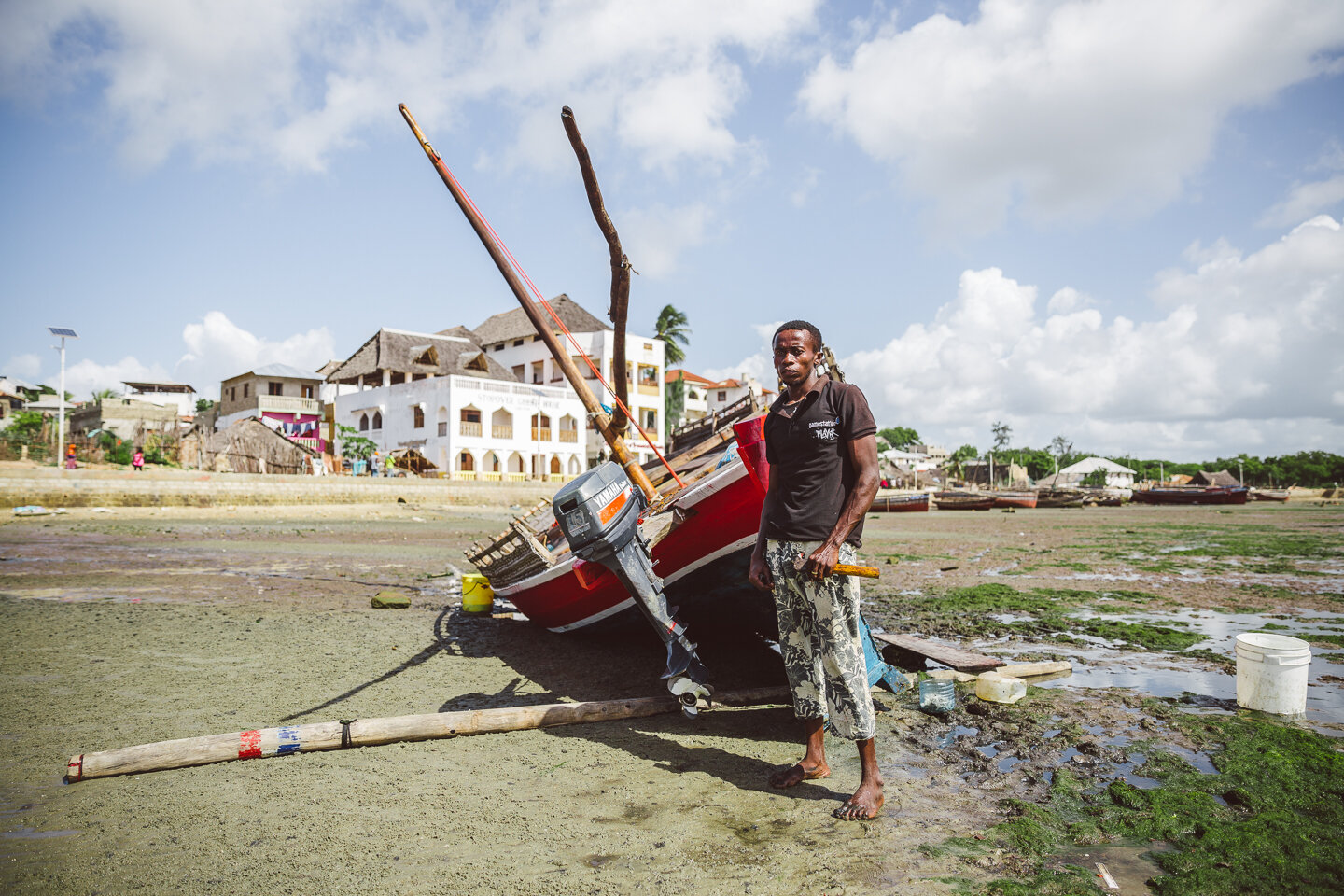
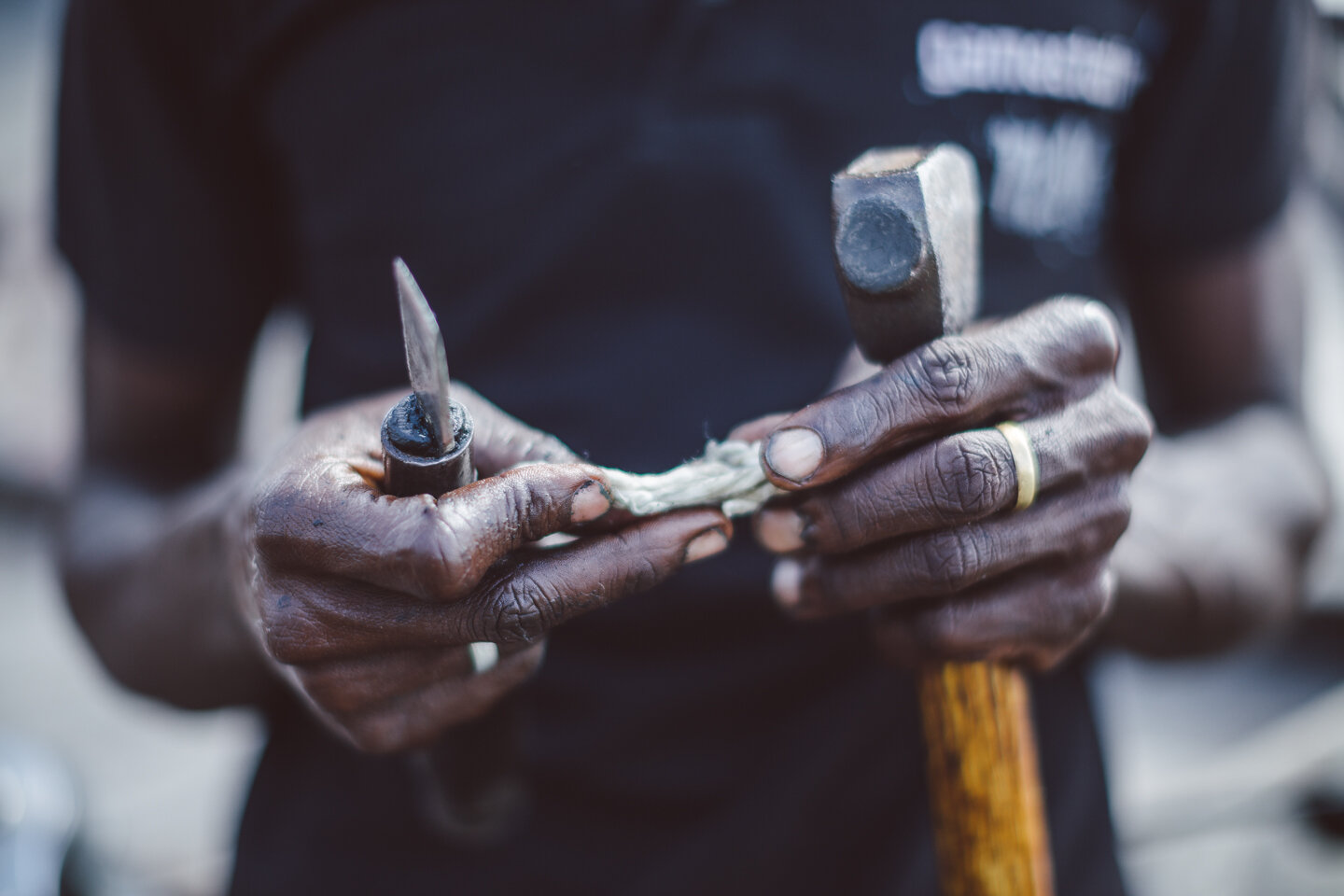 Right beside the town, I come across a group of men offloading and ferrying sand from a boat that had just docked by the island.
Right beside the town, I come across a group of men offloading and ferrying sand from a boat that had just docked by the island.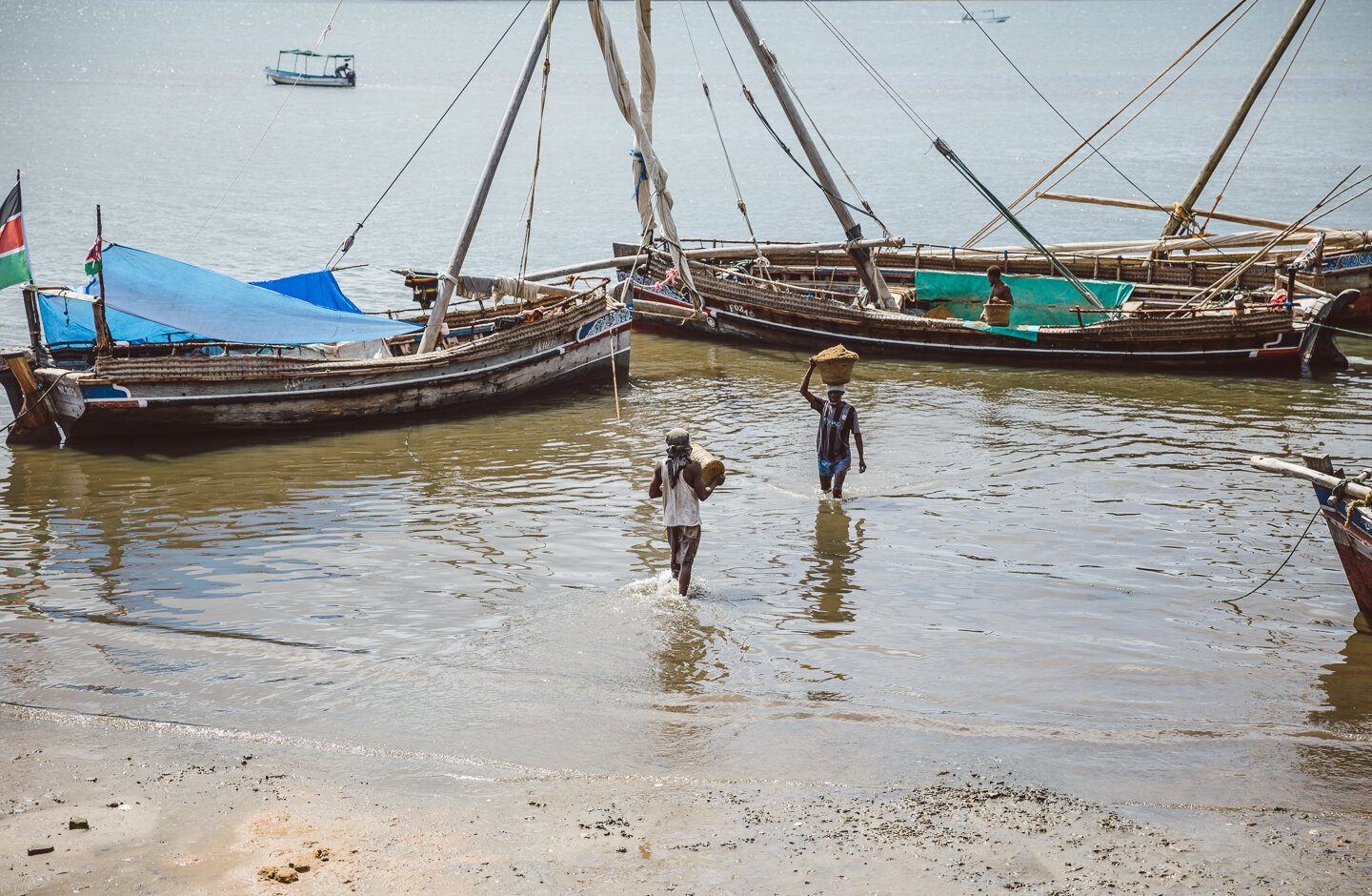
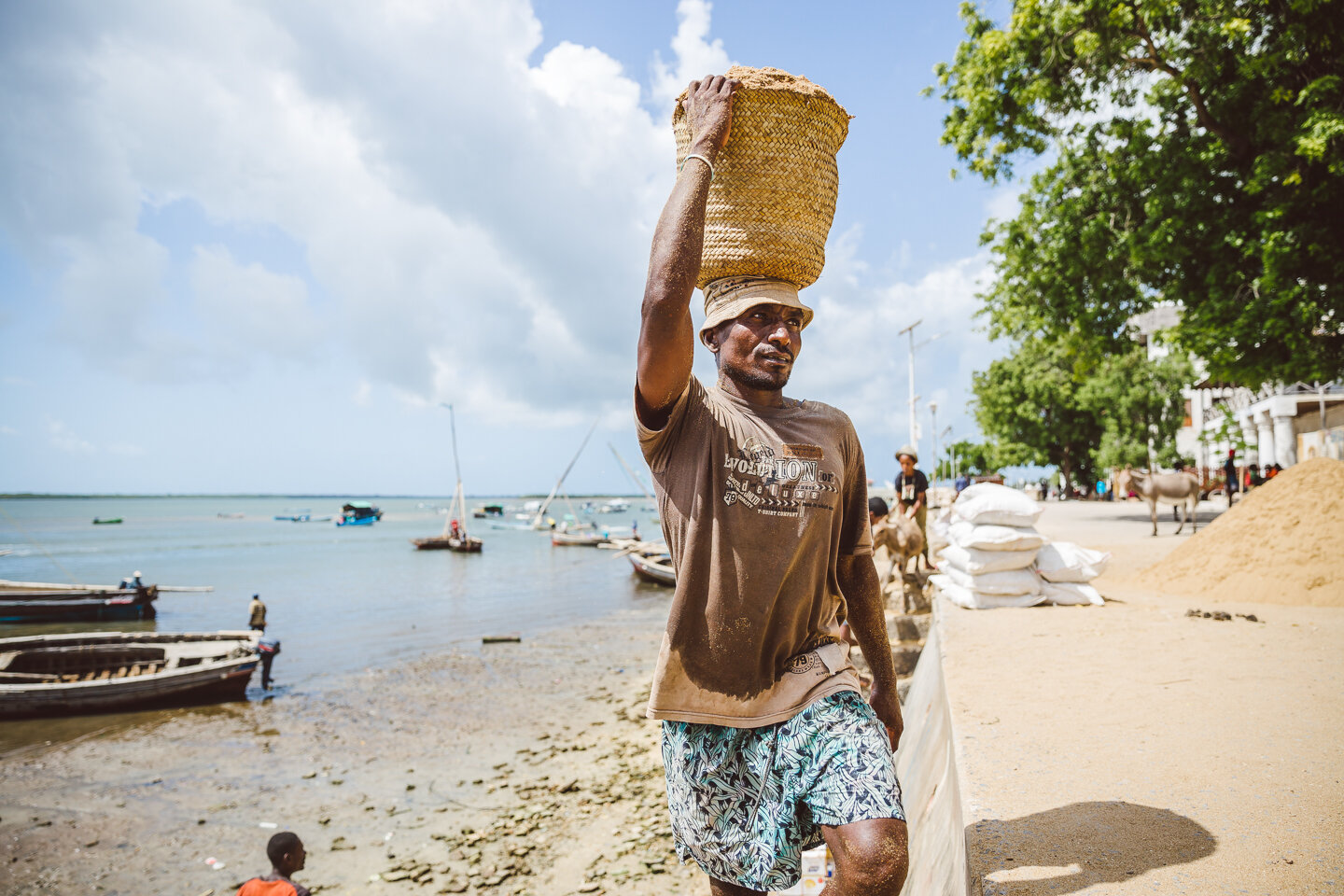 Curious to talk to them, I approach and with the help of Walid, who works in Lamu, we begin conversing.
Curious to talk to them, I approach and with the help of Walid, who works in Lamu, we begin conversing. Swaleh Ali is kind enough to engage me and share some of the work he does on a daily. His story is quite interesting. Swaleh loads sand onto his donkeys everyday and transports the sand to construction sites around Old Town and Shela.
Swaleh Ali is kind enough to engage me and share some of the work he does on a daily. His story is quite interesting. Swaleh loads sand onto his donkeys everyday and transports the sand to construction sites around Old Town and Shela. I then learn from him and his colleagues that he has heard of the coal project and being a hands on person, he wanted to work at the plant, seeing it as a source of income and something different from what he is used to doing. However, after sensitization efforts by groups against coal mining in the county, he has a firm stand point, so firm that he urged his children, 2 of whom have finished high school, to learn about the dangers of such a plant and educate him and his colleagues.
I then learn from him and his colleagues that he has heard of the coal project and being a hands on person, he wanted to work at the plant, seeing it as a source of income and something different from what he is used to doing. However, after sensitization efforts by groups against coal mining in the county, he has a firm stand point, so firm that he urged his children, 2 of whom have finished high school, to learn about the dangers of such a plant and educate him and his colleagues.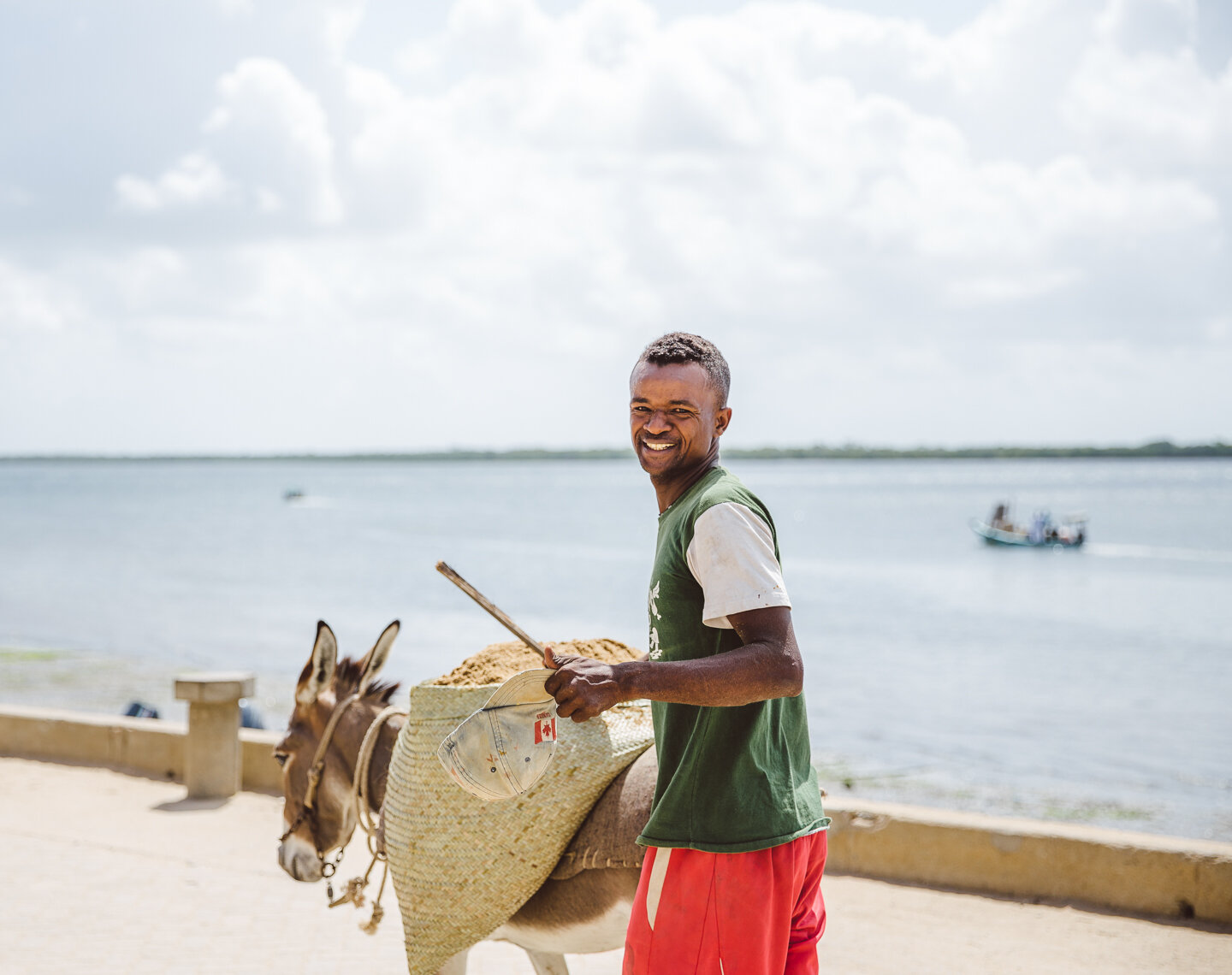 Inside Old Town's narrow streets, children run around on foot and on donkey back, the market is buzzing boisterously as the scorching sun shines on the town.
Inside Old Town's narrow streets, children run around on foot and on donkey back, the market is buzzing boisterously as the scorching sun shines on the town.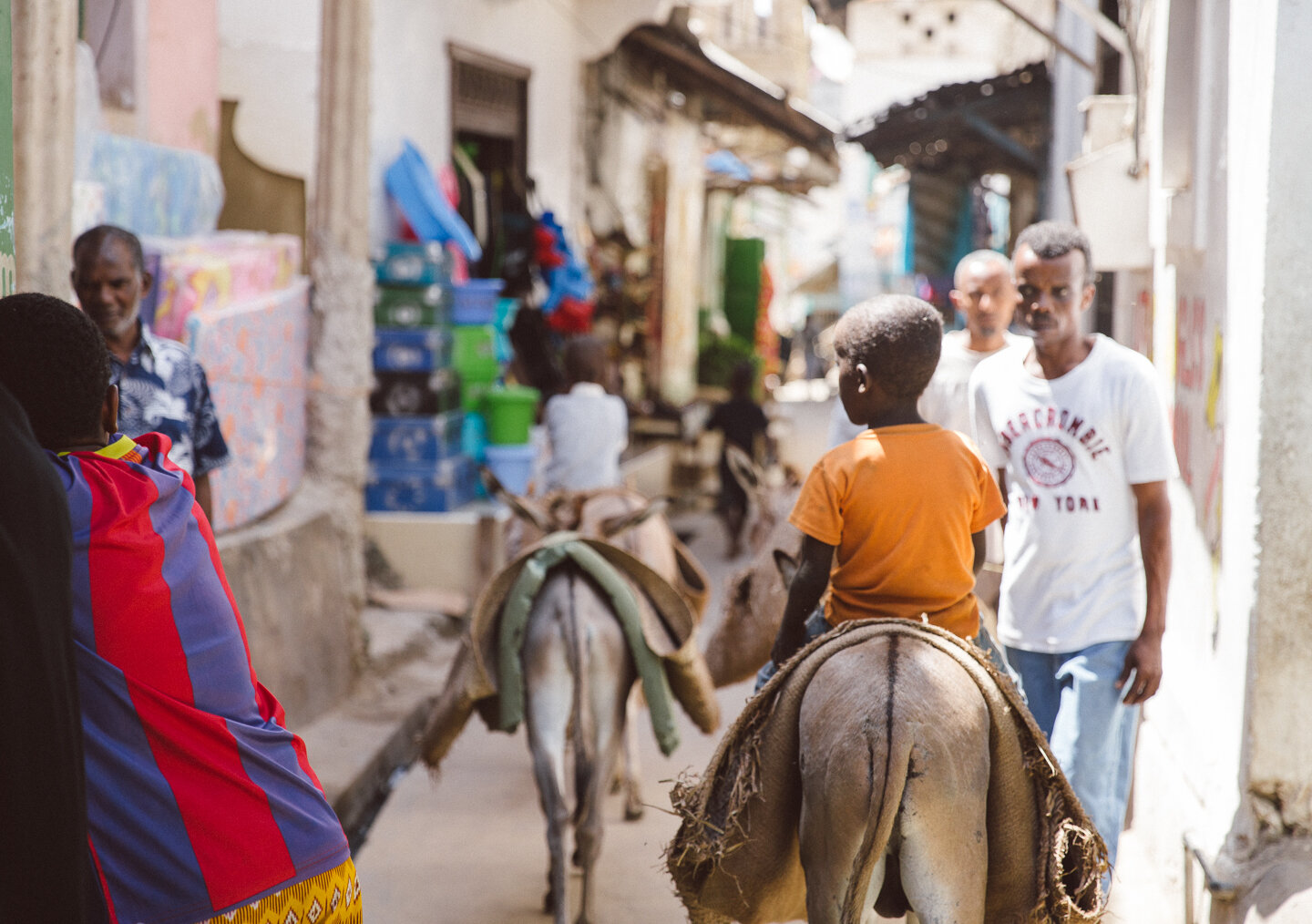 Rose Kobiro, who is originally from Baringo county, has been living in Lamu for the past 7 years. She smiles as she sells her groceries to a customer. She tells me she has not been in Lamu long enough to treasure it like most people in the town do, but she has deep appreciation for life on the island and the people who make it a friendly place to live in.
Rose Kobiro, who is originally from Baringo county, has been living in Lamu for the past 7 years. She smiles as she sells her groceries to a customer. She tells me she has not been in Lamu long enough to treasure it like most people in the town do, but she has deep appreciation for life on the island and the people who make it a friendly place to live in. Her children study at a school in the town and she wants them to live a long, healthy and happy life on the island that they call home. She's mostly worried that people will be used to provide cheap labour at the expense of their health at the plant.Next to her kiosk, is a lady who identifies herself as "Rafiki ya Rose" and is also selling groceries at her shop. After a quick chat, I learn that she came to Lamu as a result of intermarriage and has lived here ever since.
Her children study at a school in the town and she wants them to live a long, healthy and happy life on the island that they call home. She's mostly worried that people will be used to provide cheap labour at the expense of their health at the plant.Next to her kiosk, is a lady who identifies herself as "Rafiki ya Rose" and is also selling groceries at her shop. After a quick chat, I learn that she came to Lamu as a result of intermarriage and has lived here ever since.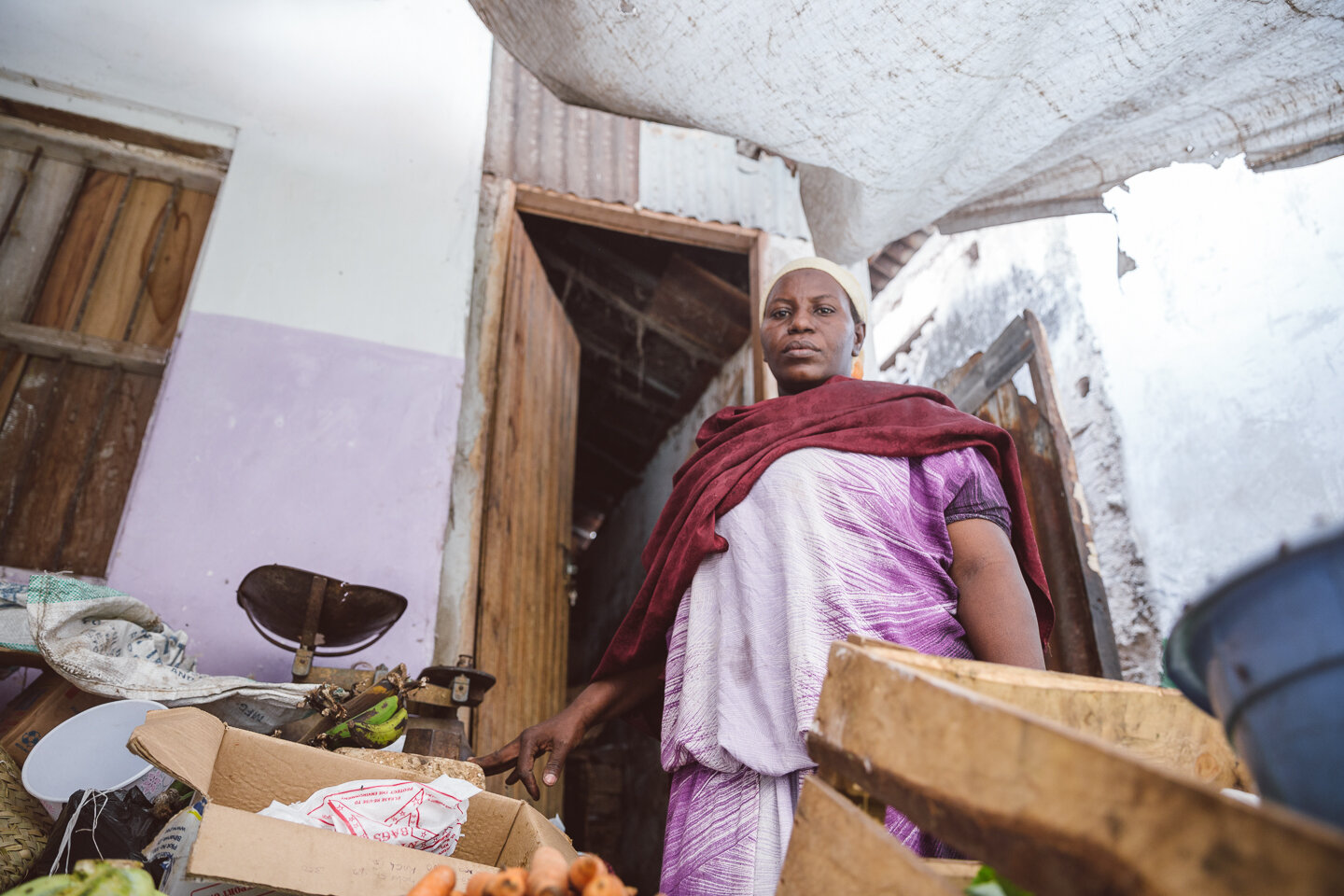 While in the market, I come across Ali Athman, who is beckoning to tourists, "Come buy my fish, it has the best memory in Lamu!" I'm told he's quite a star. He immediately catches my eye and we engage as he urges people to buy fish from him.
While in the market, I come across Ali Athman, who is beckoning to tourists, "Come buy my fish, it has the best memory in Lamu!" I'm told he's quite a star. He immediately catches my eye and we engage as he urges people to buy fish from him.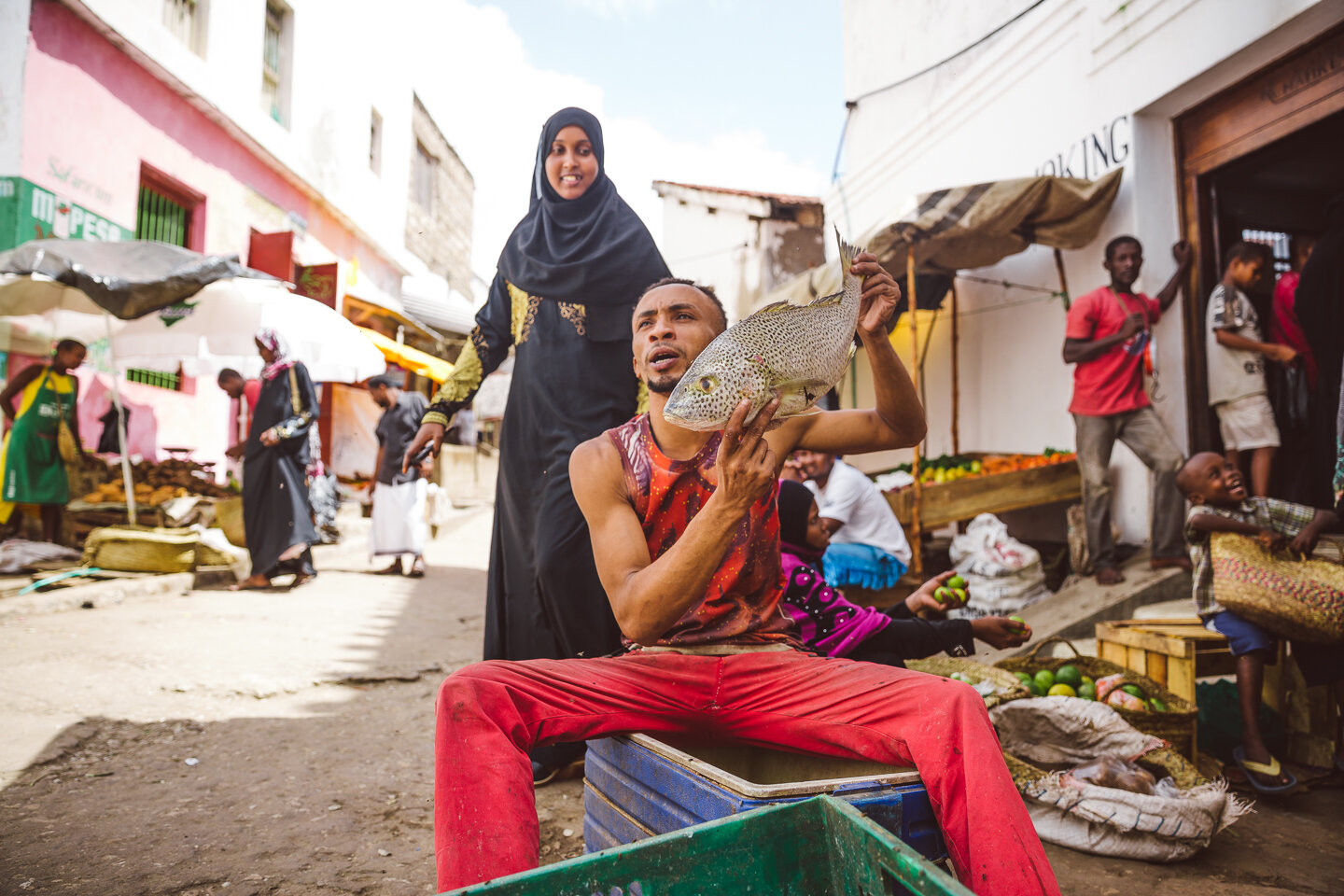 He's lucky and finds a quick order that he packs and gives to one of his customers outside the fish market.
He's lucky and finds a quick order that he packs and gives to one of his customers outside the fish market. 
 The fish market has a lot of people depending on the daily catch of fishermen on the island. I manage to photograph some of them as they engage in their usual routine.
The fish market has a lot of people depending on the daily catch of fishermen on the island. I manage to photograph some of them as they engage in their usual routine. Aboud works at the fish baraza. He sells fish and has been doing so for several years at his stall in Lamu's fish market. He knows no other life and depends on fishermen who supply to him. On a good day, he sells the whole catch. It's Ramadhan so for him business has been quite slow.
Aboud works at the fish baraza. He sells fish and has been doing so for several years at his stall in Lamu's fish market. He knows no other life and depends on fishermen who supply to him. On a good day, he sells the whole catch. It's Ramadhan so for him business has been quite slow.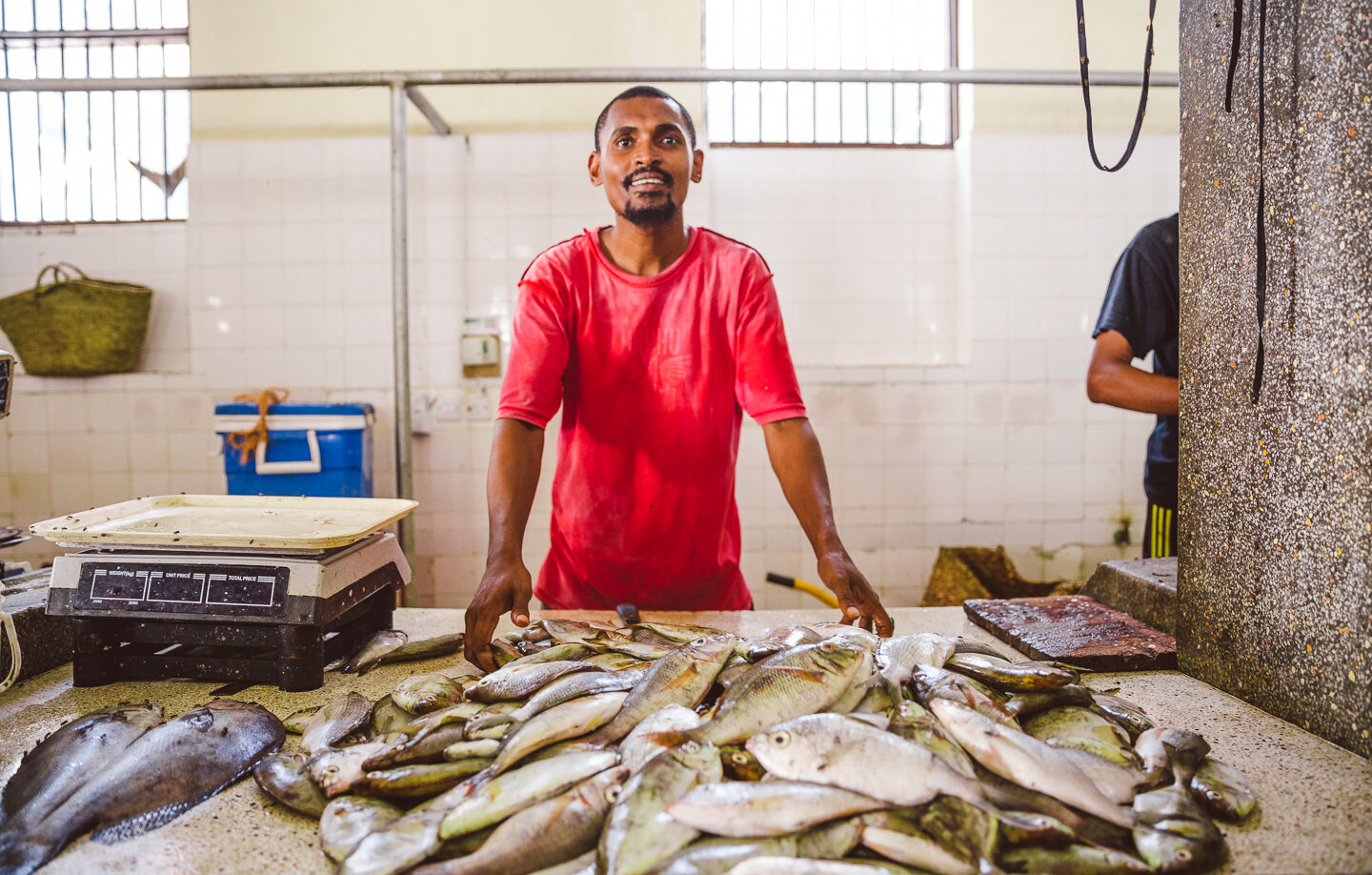

 Next to Aboud, is Mahmoud Famau who is a butcher by profession. He scales fish as well as selling other meat products like lamb meat.
Next to Aboud, is Mahmoud Famau who is a butcher by profession. He scales fish as well as selling other meat products like lamb meat. He often handles fish and says they're his biggest commodity.
He often handles fish and says they're his biggest commodity.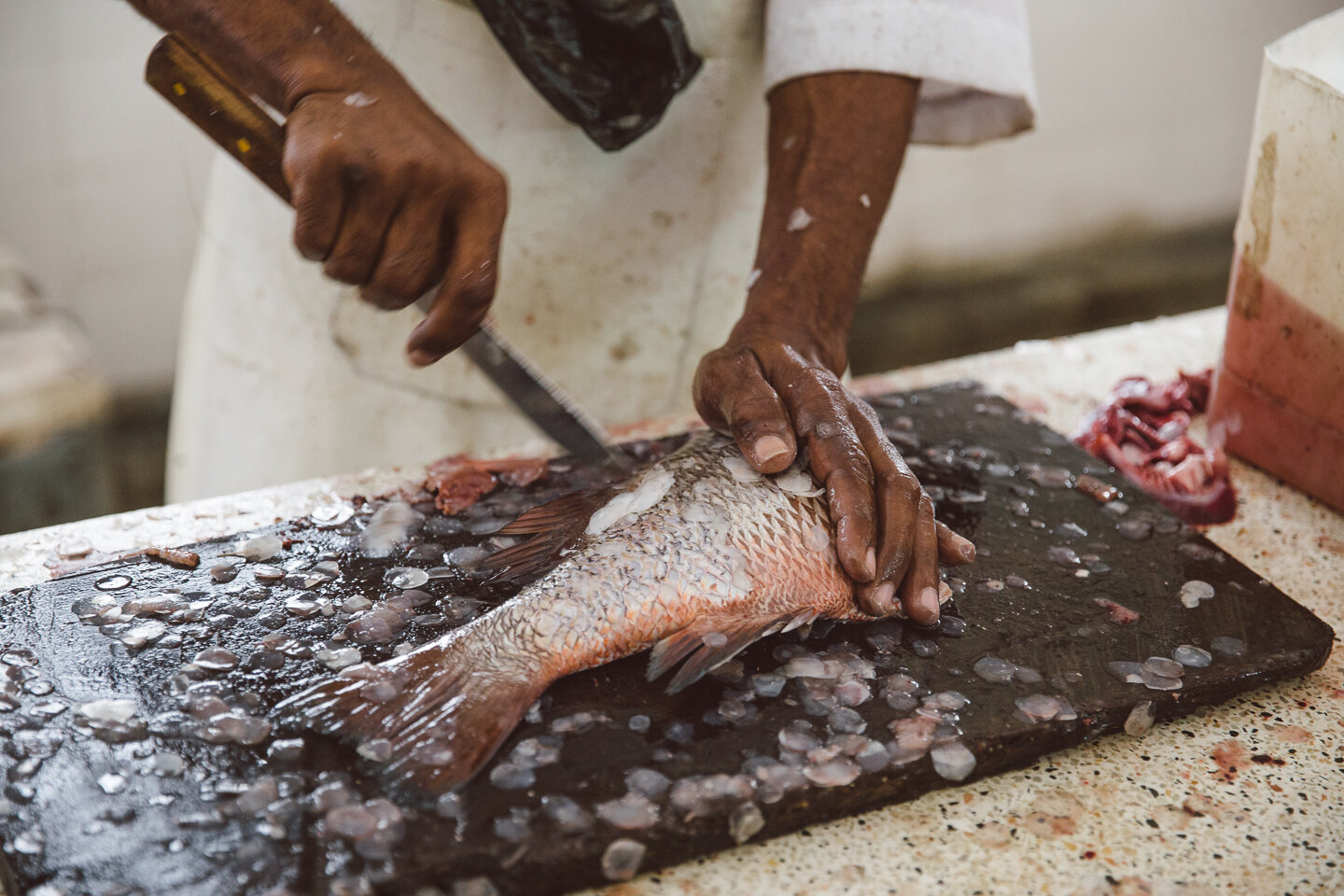 At a nearby street metres away from the Fish market is Mohammed Omar Mohammed, sitting on his pile of wood. Wood that he gets from traders in the island who ferry it from nearby which he then sells to carpenters and fishermen.
At a nearby street metres away from the Fish market is Mohammed Omar Mohammed, sitting on his pile of wood. Wood that he gets from traders in the island who ferry it from nearby which he then sells to carpenters and fishermen.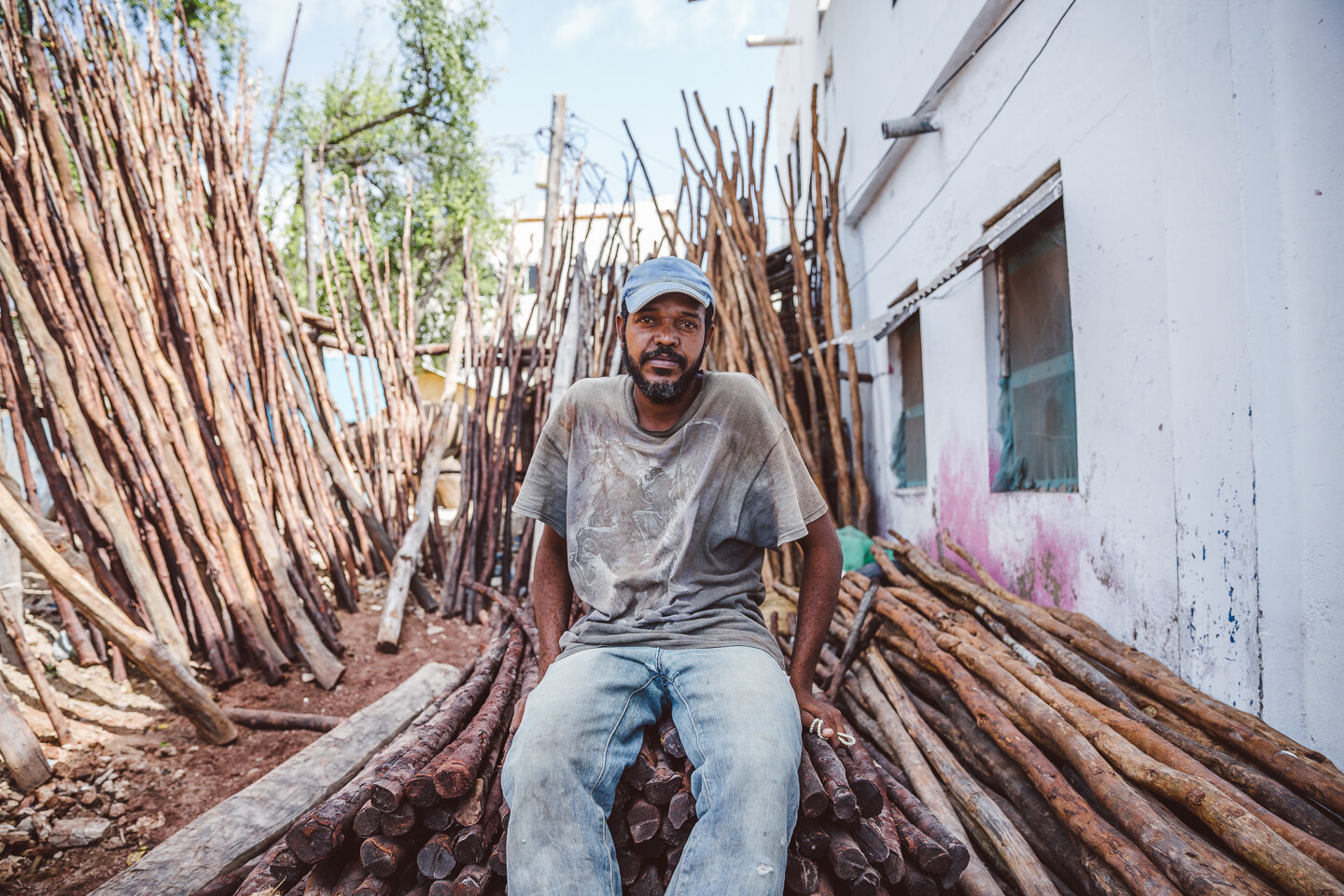 He tells me of his business that has been thriving for a couple of years with many carpenters getting wood from him to make their furniture.
He tells me of his business that has been thriving for a couple of years with many carpenters getting wood from him to make their furniture.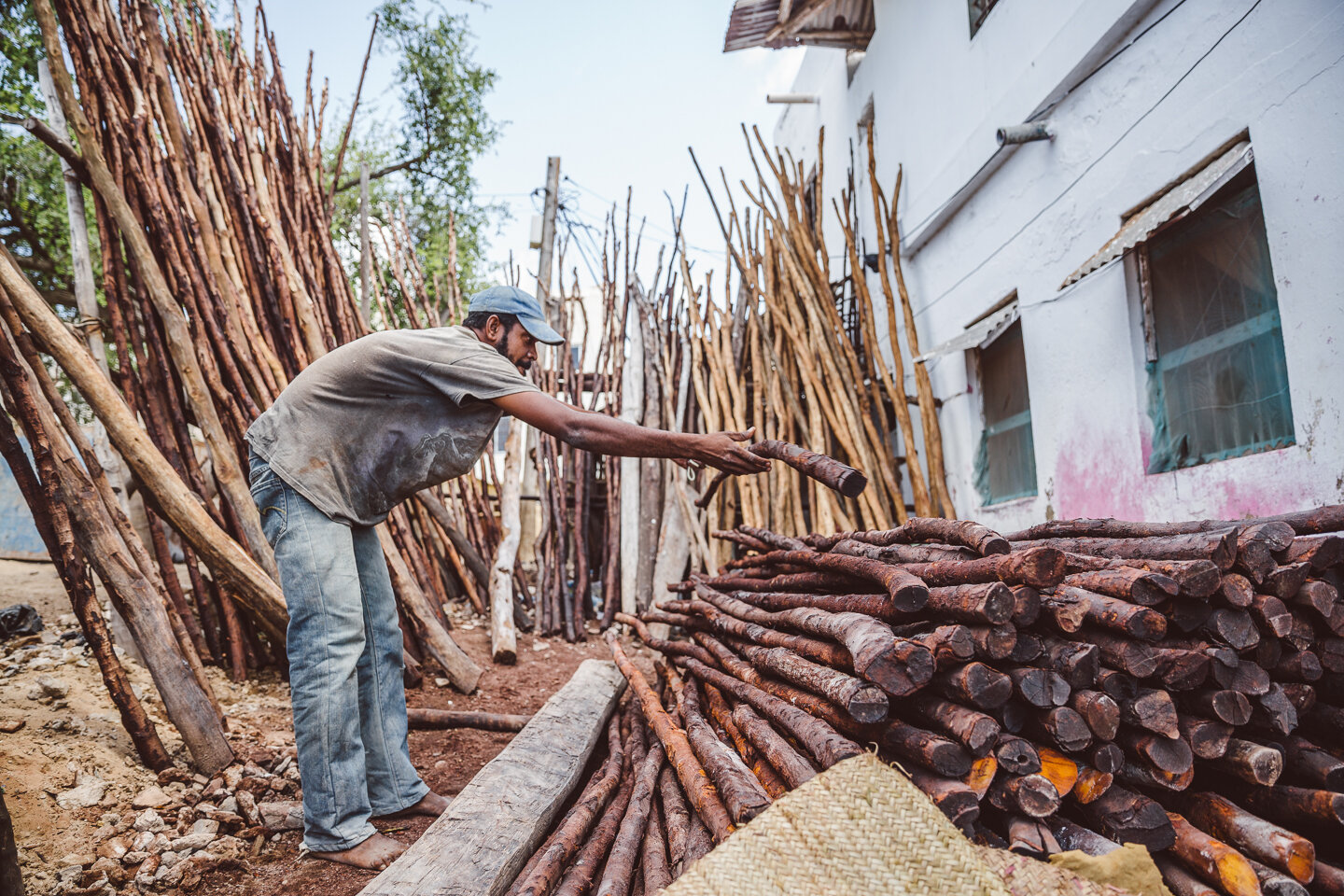 In addition, he hires out donkeys for transportation as a side business that makes him some good money. He got into the transport business after fishing for a couple of years and later selling his boat to pump in money to his current venture.Tourism is a key part of Lamu. This has created opportunities for tour guides who know every corner of the town to make a living out of their hospitality and knowledge of the island. Such is the life of Ali Hasssan.
In addition, he hires out donkeys for transportation as a side business that makes him some good money. He got into the transport business after fishing for a couple of years and later selling his boat to pump in money to his current venture.Tourism is a key part of Lamu. This has created opportunities for tour guides who know every corner of the town to make a living out of their hospitality and knowledge of the island. Such is the life of Ali Hasssan.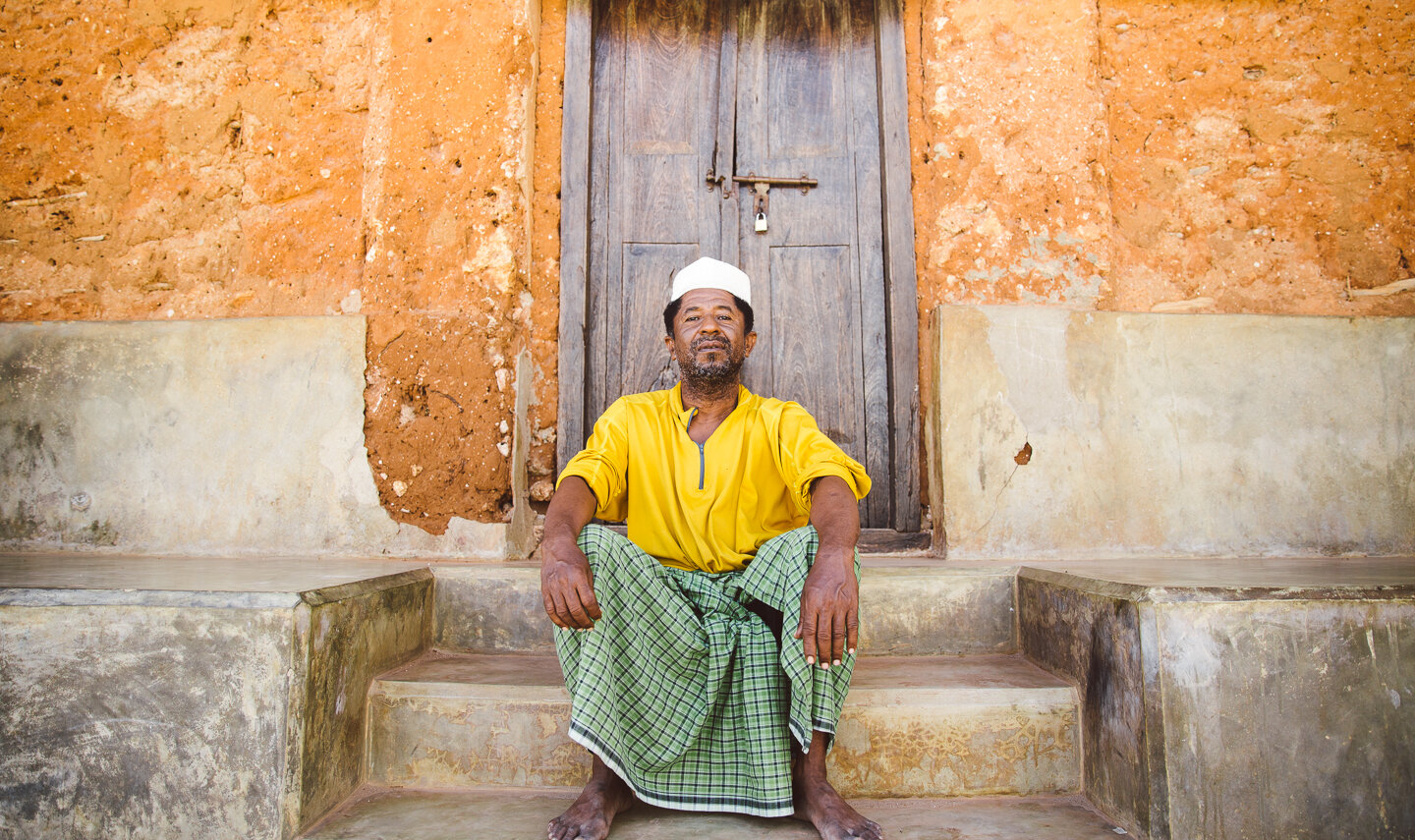
Without tourism in Lamu, his livelihood suffers.
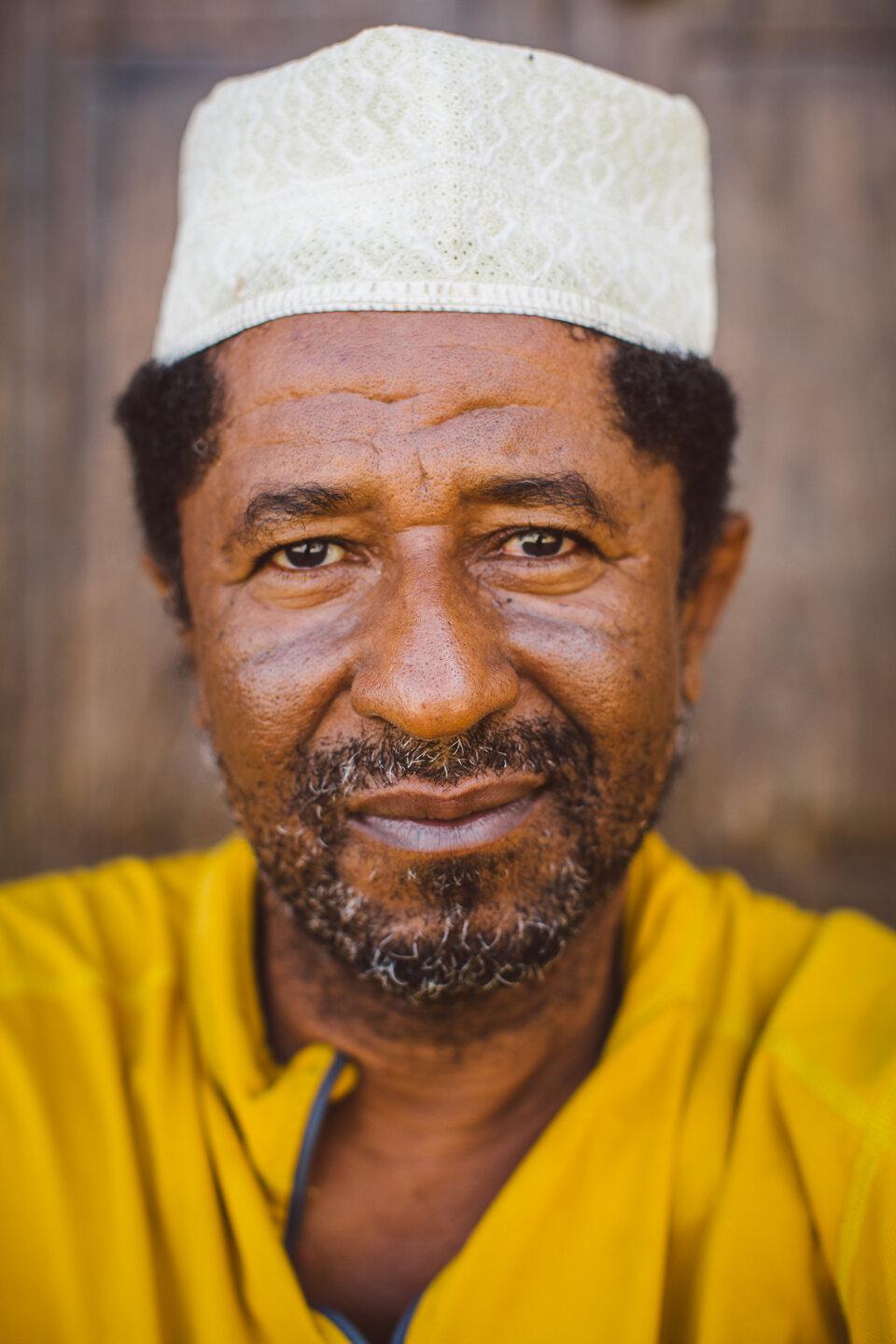 Next to him, are 4 boys taking turns riding one bicycle and playing "bano". They quickly see my camera and begin asking for photos to which I oblige.
Next to him, are 4 boys taking turns riding one bicycle and playing "bano". They quickly see my camera and begin asking for photos to which I oblige. These are the generations that are likely to feel the impact of the coal plant the most if we allow it to proceed.
These are the generations that are likely to feel the impact of the coal plant the most if we allow it to proceed. 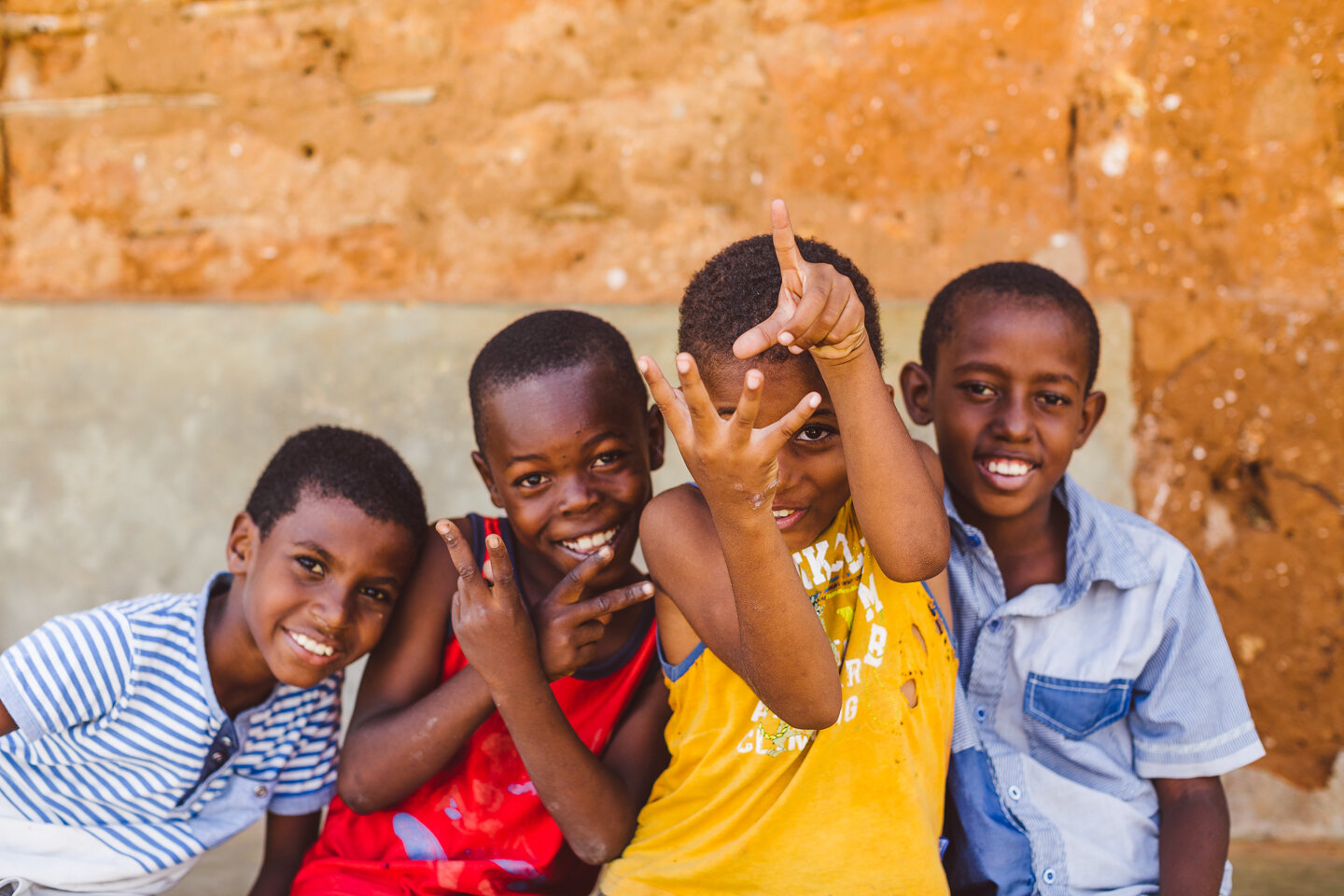 While on a boat ride to see the area near the proposed coal plant, we meet Mohammed Abdul, 10 years of age, fishing. In the few seconds we have with him, he informs us that he lives in an area known as Mkanda, where he has to wade in water to get to his home which is a bit far from the Old Town but near the proposed coal plant site.
While on a boat ride to see the area near the proposed coal plant, we meet Mohammed Abdul, 10 years of age, fishing. In the few seconds we have with him, he informs us that he lives in an area known as Mkanda, where he has to wade in water to get to his home which is a bit far from the Old Town but near the proposed coal plant site.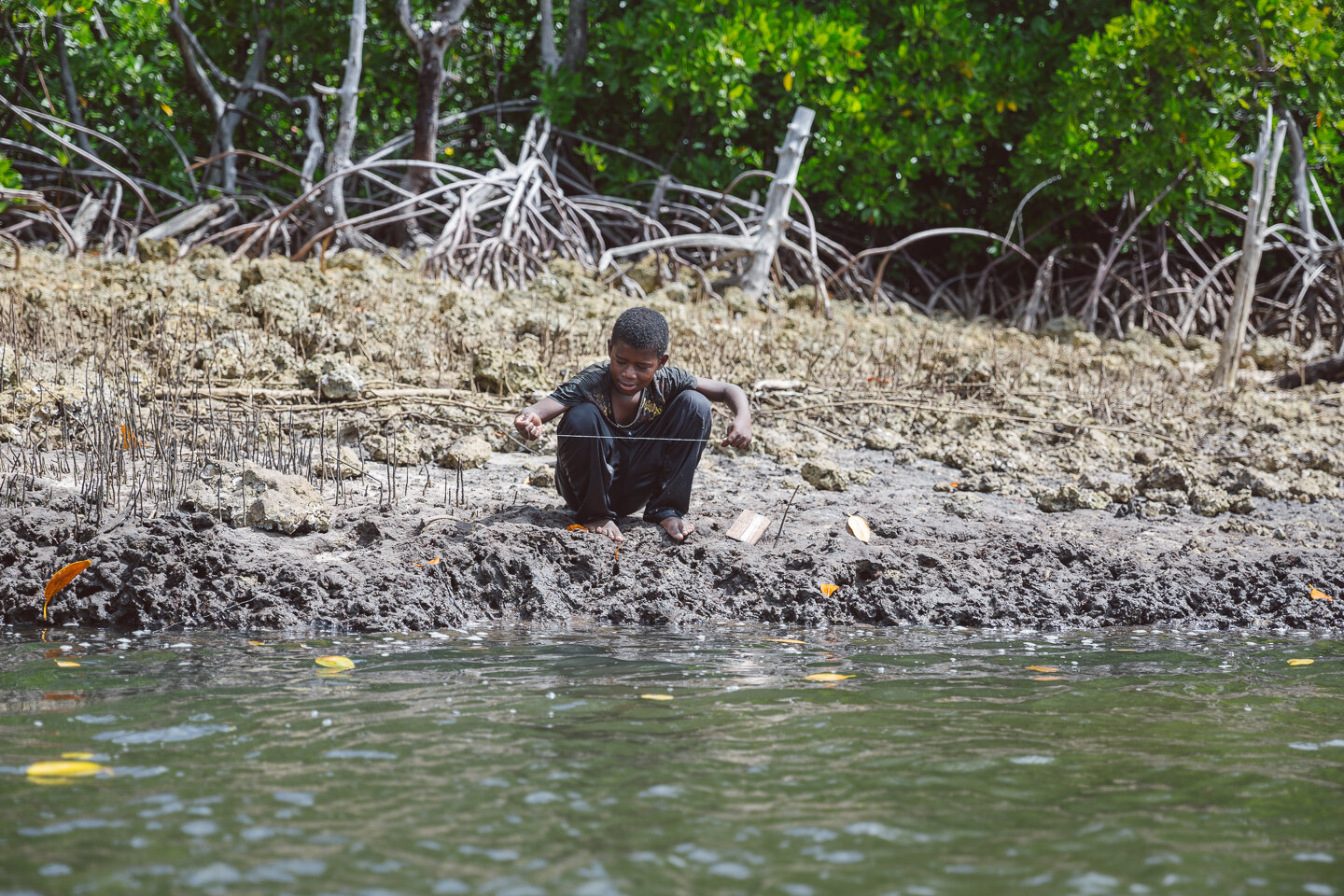 In a few years, should this project carry on, he will have nothing to fish.These are just but a fraction of people who will be affected. They matter. Their lives depend on the existence of a habitable environment. They are not just numbers, but they are people like you and I. Marine life, both plants and animals depend on us rational people to urge the government to avoid making this crucial mistake. It has no basis for conservation and is only geared toward short term gain while ignoring the real long term consequence that the people of Lamu and Kenya in general will suffer. Coal has no place in a time where renewable sources of energy are cleaner and greener alternatives. A clear case can be made for Solar energy which will have zero implication on the lives of the people of Lamu. Lives and generations are at stake.There are ongoing Supreme Court Hearings on the Lamu Coal Plant open for the public on June 19th 2017 and July 13th-14th 2017.This is a huge mistake that has no reasonable justification in the 21st century. We need to unchain ourselves from the coalonization being fed to us masqueraded as employment, energy and an improved economy. We need to decoalonize ourselves as a country and the people of Lamu.Save Lamu!You can do something by volunteering and sharing your concerns here
In a few years, should this project carry on, he will have nothing to fish.These are just but a fraction of people who will be affected. They matter. Their lives depend on the existence of a habitable environment. They are not just numbers, but they are people like you and I. Marine life, both plants and animals depend on us rational people to urge the government to avoid making this crucial mistake. It has no basis for conservation and is only geared toward short term gain while ignoring the real long term consequence that the people of Lamu and Kenya in general will suffer. Coal has no place in a time where renewable sources of energy are cleaner and greener alternatives. A clear case can be made for Solar energy which will have zero implication on the lives of the people of Lamu. Lives and generations are at stake.There are ongoing Supreme Court Hearings on the Lamu Coal Plant open for the public on June 19th 2017 and July 13th-14th 2017.This is a huge mistake that has no reasonable justification in the 21st century. We need to unchain ourselves from the coalonization being fed to us masqueraded as employment, energy and an improved economy. We need to decoalonize ourselves as a country and the people of Lamu.Save Lamu!You can do something by volunteering and sharing your concerns here


